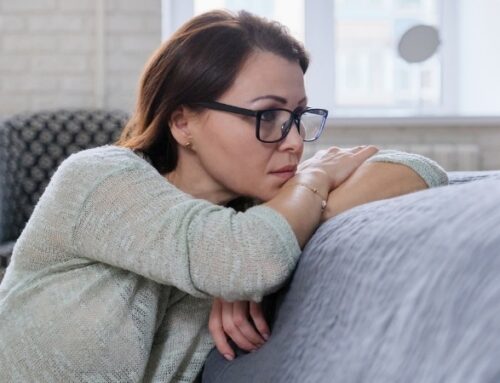In today’s day and age, life is fast-paced and filled with stimulation. It is no surprise more and more adults are being diagnosed with some form of anxiety disorder. In 2018, retail book giant Barnes and Noble saw a 25% jump in sales of books related to anxiety. With a rise in discussion about mental health in the media and society, more people are speaking up about the anxiety disorders they suffer from. The most common form of anxiety that is diagnosed is called Generalized Anxiety Disorder.
Generalized Anxiety Disorder or GAD is an anxiety disorder that affects over 3% of the population in the United States. It is often characterized as a type of excessive anxiety that does not go away. People who suffer from GAD may find themselves obsessively worrying about nearly anything. Family, health, finances, and work are the most commonly reported issues people struggle with, but some people find they obsess over smaller things such as weather or phobias. Persistent fear of the future often controls individuals and makes daily routine tasks seem near impossible. At times, some people find they cannot get out of bed or start their day without the anxiety taking control. Often people know they have no reason to worry and their fear holds no value. Yet it does nothing to stop the symptoms and racing thoughts from forming.
The symptoms of GAD may go beyond just the mind as physical symptoms usually occur. These include headaches, nausea, trembling, frequent trips to the bathrooms, sweating and difficultly concentrating. Sleep issues including insomnia as well as being overtired are also reported. The Anxiety and Depression Association of America reports that of the 6.8 million adults in the US who suffer from Generalized Anxiety Disorder only 43.2% of those people are receiving treatment. This number is startling as many different treatment options are available to help individuals find relief.

Psychotherapy for Treating Anxiety
While prescription medication is available for treating anxiety, it often only masks the symptoms and does not get to the root cause of the anxiety forming in the first place. The most effective forms of psychotherapist for treating anxiety are evidence-based. Cognitive Behavioral Therapy or CBT is a type of talk therapy that mental health professionals often use when treating patients with anxiety or depression. This type of therapy helps the patient work toward long term treatment goals and building skills to use in everyday life. Another type of therapy that is used is Supportive-Expressive Therapy. It is a type of psychotherapy that allows the patient to feel supported and safe while identifying and working through their anxiety issues.
Many people with anxiety issues have great success with using different forms of meditation and relaxation techniques including yoga, breathing, guided imaginary and muscle massage. Diet and exercise have also proved to have a positive influence with the treatment of anxiety as well as other mental health disorders.
Living with Generalized Anxiety Disorder is a challenge that many people find difficult to navigate. With the right treatment and willingness to ask for help, a lasting and full recovery is possible. Remember you are not alone in this struggle!

You don’t have to go it alone
Depression, sadness, anxiety disorders, stress, and worry can make it difficult to find happiness in your life. We all need support at different times in our lives. Most of our clients seek help when their current way of dealing with life’s challenges no longer works for them. With a caring, non-judgmental and solution-focused approach, we will explore your issues and challenges in a safe therapeutic environment at our private practice in Delray Beach, Florida.
We also offer remote online therapy from the comfort and security of home that will allow you to learn more effective ways of managing your anxiety and stress.
Let’s walk the path to freedom from depression and anxiety together. If you’re ready to let go of the sadness, depression, fears, worries, and anxieties that are making life difficult, check out our Anxiety & Depression Support Group hosted the 1st Tuesday of each month at the Counseling Center for Growth and Recovery.





